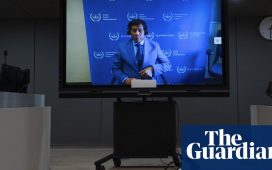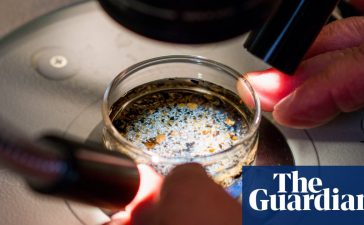Questions were asked in the House of Commons after Keith Carmichael disappeared into a Saudi Arabian jail in November 1981. His case was repeatedly raised by MPs and peers as news of his brutal mistreatment filtered out. It was not until he was released without charge two and half years later, however, that the extent of the torture he had endured became public knowledge.
Carmichael, who has died aged 90, was held in solitary confinement for three months, deprived of food and sleep, beaten on his knees and feet, sexually assaulted, shackled in leg irons, suffered a fractured spine and detained in rat-infested cells. He was also threatened with crucifixion and electrocution if he did not confess to numerous crimes (including leaving Saudi Arabia illegally, spying and criticising the royal family), which he refused to do.
The former Scots Guards officer and businessman never received a formal apology from the Saudi government or official compensation for his ordeal. Nor did his unlawful imprisonment cause any significant disruption to UK-Saudi commercial relations.
Although physically and psychologically damaged, Carmichael did not succumb to self-pity but transformed his indignation into founding in 1992 and developing a charity, Redress, to support torture survivors and help them obtain justice.
Now an international organisation based in London and The Hague, it has 30 employees. Redress may not have succeeded in overturning the long-established law on state immunity – which means that foreign states are immune from legal action in British courts – but it has raised awareness of the suffering of victims, and campaigns against the use of torture.
A tall, imposing figure, Carmichael had arrived in Saudi Arabia to work on construction projects. The company he worked for, Sacem, was hired in 1981 by a corporation controlled by a Saudi royal family member. Disagreement arose over Sacem’s alleged debts and his visa was in danger of being revoked. Advised by lawyers to flee the country, he was arrested in neighbouring Qatar and returned to Ulaysha detention centre. He eventually spent 857 days in Saudi prisons, but managed to smuggle out reports of his torture to Amnesty International.
The British ambassador to Saudi Arabia later told Carmichael that Prince Salman bin Abdulaziz al Saud, then the governor of Riyadh and now the Saudi king, had described Carmichael’s imprisonment as “a mistake”. He was freed in March 1984 and flown back to London for hospital treatment.
Born in London, Keith was the younger son of Jeannette (nee Montgomerie) and Arnold Carmichael. His father, a neurologist, was director of the neurological research unit at the Medical Research Council. Keith’s elder brother, Ian, went on to become an expert on volcanoes and professor of earth sciences at the University of California, Berkeley.
From Westminster school Keith went on to national service as a second lieutenant in the Scots Guards (1952-54). Posted abroad, he was stationed in the Suez canal zone. At Oxford University, he studied philosophy, politics and economics but switched to a business course at the University of London. After university he worked in sales at Shell, became a marketing manager at Lever Brothers, wrote management training manuals and travelled in the Middle East as a freelance writer. For several years he was employed by IPC Magazines and Thomson Publications.
He also served as a captain in the Territorial Reserve attached to the Independent Parachute brigade. In 1972, he became chairman of companies that restored historic properties and built housing developments. Five years later he joined Sacem International as managing director. The Dutch company constructed warehouses, medical centres and accommodation for foreign workers in Saudi Arabia.
After returning from his ordeal, he spent several years recuperating. Often in pain, he walked stiffly with a limp and was diagnosed with PTSD. He nonetheless retained his charismatic sense of humour.
Having failed to obtain reparations through diplomatic channels and court actions in Saudi Arabia and the US, Carmichael turned his efforts to confronting the broader problem of torture and helping other survivors.
In 1992, he established Redress with the help of Dame Rosalyn Higgins KC, the former president of the international court of justice, other lawyers and activists. He gave evidence to the US Congress and to the UK parliament.
The charity championed the case of Sulaiman al-Adsani – a Kuwaiti and British citizen who had been tortured in Kuwait – in 2001, taking his appeal against state immunity to the European court of human rights, where it narrowly lost the final judgment.
The torture damages bill – a private members’ bill initiated by Lord (Peter) Archer of Sandwell and backed by Redress – sought to create an exception to the 1978 State Immunity Act by preventing alleged torturers from claiming immunity in British courts. It was supported by the House of Lords in 2008 but never adopted by the Commons.
Carmichael explained: “For many of us [torture survivors] the goal is for states to admit that we have been tortured. Importantly, we would like to receive an apology. We would like to see the torturers punished. We need to prove that they did not succeed in destroying us as human beings.”
Years later he was given a token sum by a Saudi individual.
Carmichael had been married but divorced following his detention in Saudi Arabia. His brother died in 2011.











